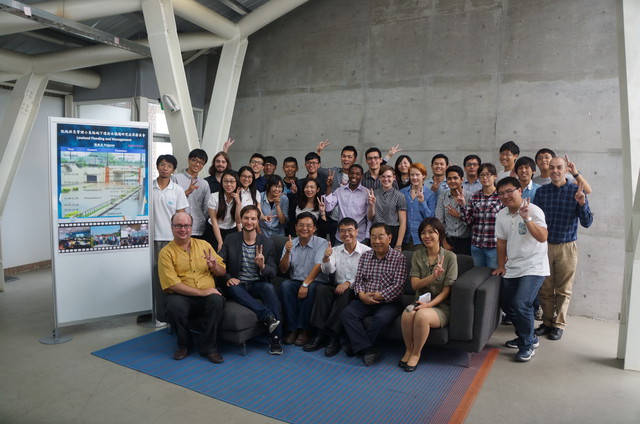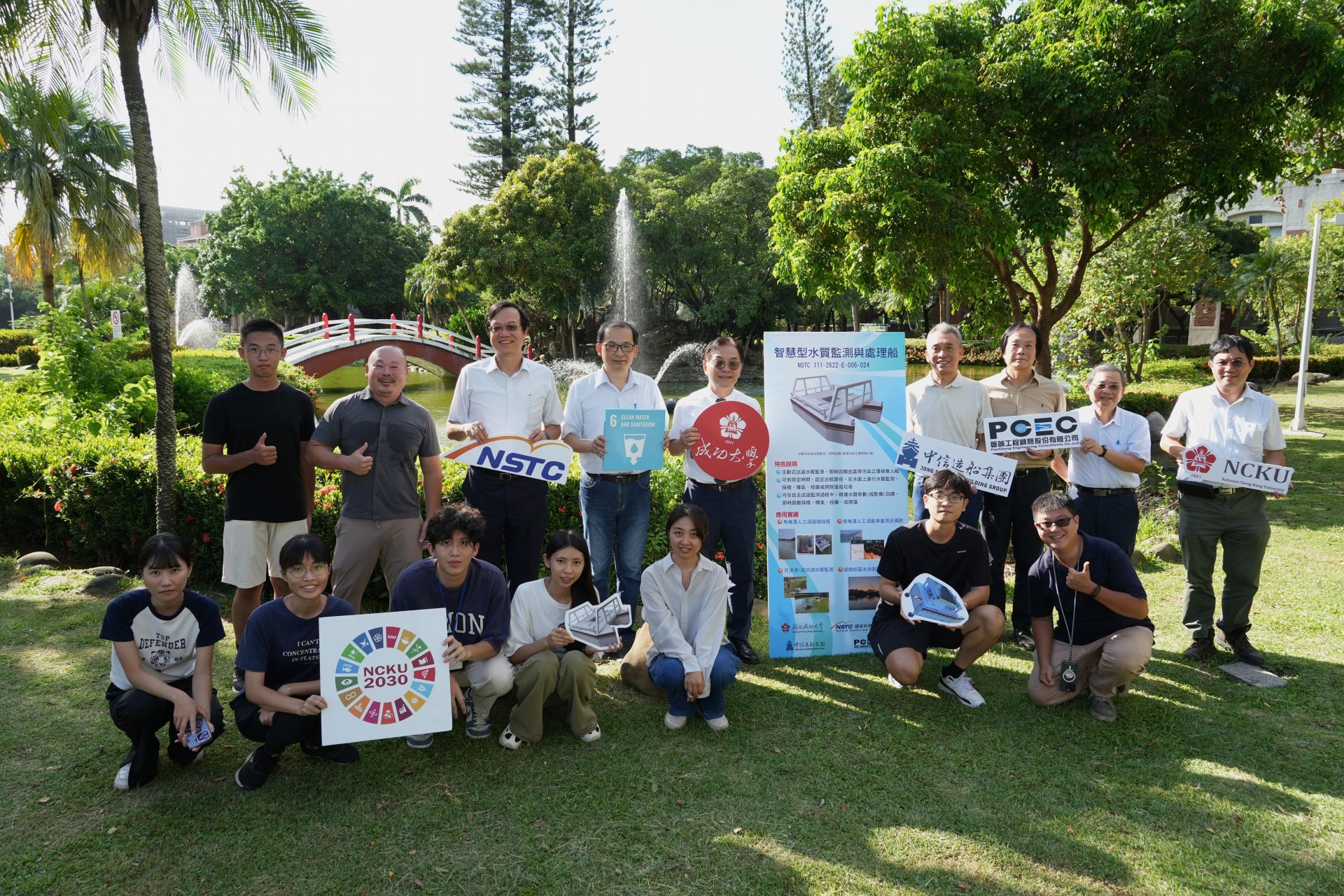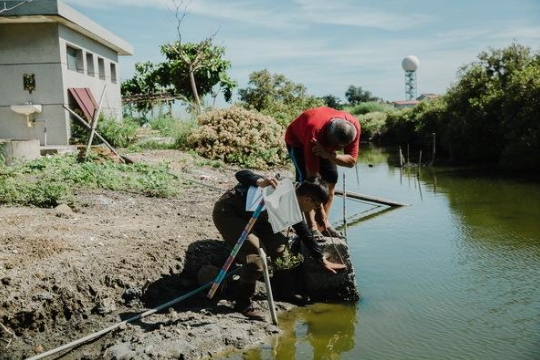Professor Tsair Fuh Lin of NCKU Environmental Engineering Department owns a team that studies the harmful alga in the reservoir. To ensure the safety of water, prof. Lin is dedicated to setting up and applying the skills of testing and early warning systems. In the summer of 2016, Prof. Senoro from Mapúa university, Philippines, invited Prof. Lin’s team to conduct research on harmful alga in Philippines. Due to the lack of detectability Philippines, the research in 2016 can be regarded as the biggest scale research on harmful alga.
The result of the research has been valued by the Laguna Lake Development Authority (LLDA) and the water companies Maynilad and Manila. They paid a visit to NCKU respectively in April, 2017 and November,2019, and discussed the possibility of cooperation under the premise of handling and solving the problem of drinking water in the Philippines.
In addition to the problem of alga, Manila has other water quality problems with tap water. For example, manganese, turbidity, ammonia nitrogen,and total dissolved solids, etc. When facing the problem of water quality, Manila used to be limited by the ability to research and analyze. Therefore, they could only send their samples abroad to be tested by foreign countries.
Team of NCKU and Taiwanese Water Company have many experiences in improving the quality of water. Therefore, in order to assist Philippines in water quality research and the ability of solving water quality problems, NCKU and Mapúa established the “Taiwan-Philippines Joint Water Quality Research and Innovation Center” under the support of NSTC. The center aimed to strengthen talent cultivation, encourage talent exchange, build up a database of water quality professionals in the Philippines, and raise the visibility and recognition of Taiwan academia and industry in the Philippines. What’s more, it will help the Philippines with important research on water sources,deal with the problem of water source and quality, and raise the ability of water research and processing technology.
At the same time, NCKU and the team of Taiwan will modify and improve the skill in water quality monitoring and processing in the Philippines based on their experience and skill. They will mainly focus on the tap water factory in Manila and the water quality of “ Laguna de Bay” and expand to other water sources and tap water factories in order to handle the full situation in the whole Philippines, raise the skill and application opportunity of Taiwan, and achieve the goal of academic diplomacy and technical output.
Under the support of NSTC, the Taiwan-Philippines Joint Water Quality Research and Innovation Center has held four courses of alga and metabolite analysis, testing, and technical processing and cultivated over fifty Philippines researchers and technicians, effectively improving the capacity of skills of water-related research. What’s more, the center has also conducted the first large-scale research of alga, toxins and odoriferous substances in water sources, effectively understanding the current situation of water quality.
The industries of Taiwan, donated facilities and materials which reached a total value of over 1.25 million to the Taiwan-Philippines Joint Water Quality Research and Innovation Center in Sep. 2018. Their generous donation not only deepened the cooperation between Taiwan and the Philippines, but also raised the ability of water quality research in the Philippines.
The result of the research has been valued by the Laguna Lake Development Authority (LLDA) and the water companies Maynilad and Manila. They paid a visit to NCKU respectively in April, 2017 and November,2019, and discussed the possibility of cooperation under the premise of handling and solving the problem of drinking water in the Philippines.
In addition to the problem of alga, Manila has other water quality problems with tap water. For example, manganese, turbidity, ammonia nitrogen,and total dissolved solids, etc. When facing the problem of water quality, Manila used to be limited by the ability to research and analyze. Therefore, they could only send their samples abroad to be tested by foreign countries.
Team of NCKU and Taiwanese Water Company have many experiences in improving the quality of water. Therefore, in order to assist Philippines in water quality research and the ability of solving water quality problems, NCKU and Mapúa established the “Taiwan-Philippines Joint Water Quality Research and Innovation Center” under the support of NSTC. The center aimed to strengthen talent cultivation, encourage talent exchange, build up a database of water quality professionals in the Philippines, and raise the visibility and recognition of Taiwan academia and industry in the Philippines. What’s more, it will help the Philippines with important research on water sources,deal with the problem of water source and quality, and raise the ability of water research and processing technology.
At the same time, NCKU and the team of Taiwan will modify and improve the skill in water quality monitoring and processing in the Philippines based on their experience and skill. They will mainly focus on the tap water factory in Manila and the water quality of “ Laguna de Bay” and expand to other water sources and tap water factories in order to handle the full situation in the whole Philippines, raise the skill and application opportunity of Taiwan, and achieve the goal of academic diplomacy and technical output.
Under the support of NSTC, the Taiwan-Philippines Joint Water Quality Research and Innovation Center has held four courses of alga and metabolite analysis, testing, and technical processing and cultivated over fifty Philippines researchers and technicians, effectively improving the capacity of skills of water-related research. What’s more, the center has also conducted the first large-scale research of alga, toxins and odoriferous substances in water sources, effectively understanding the current situation of water quality.
The industries of Taiwan, donated facilities and materials which reached a total value of over 1.25 million to the Taiwan-Philippines Joint Water Quality Research and Innovation Center in Sep. 2018. Their generous donation not only deepened the cooperation between Taiwan and the Philippines, but also raised the ability of water quality research in the Philippines.
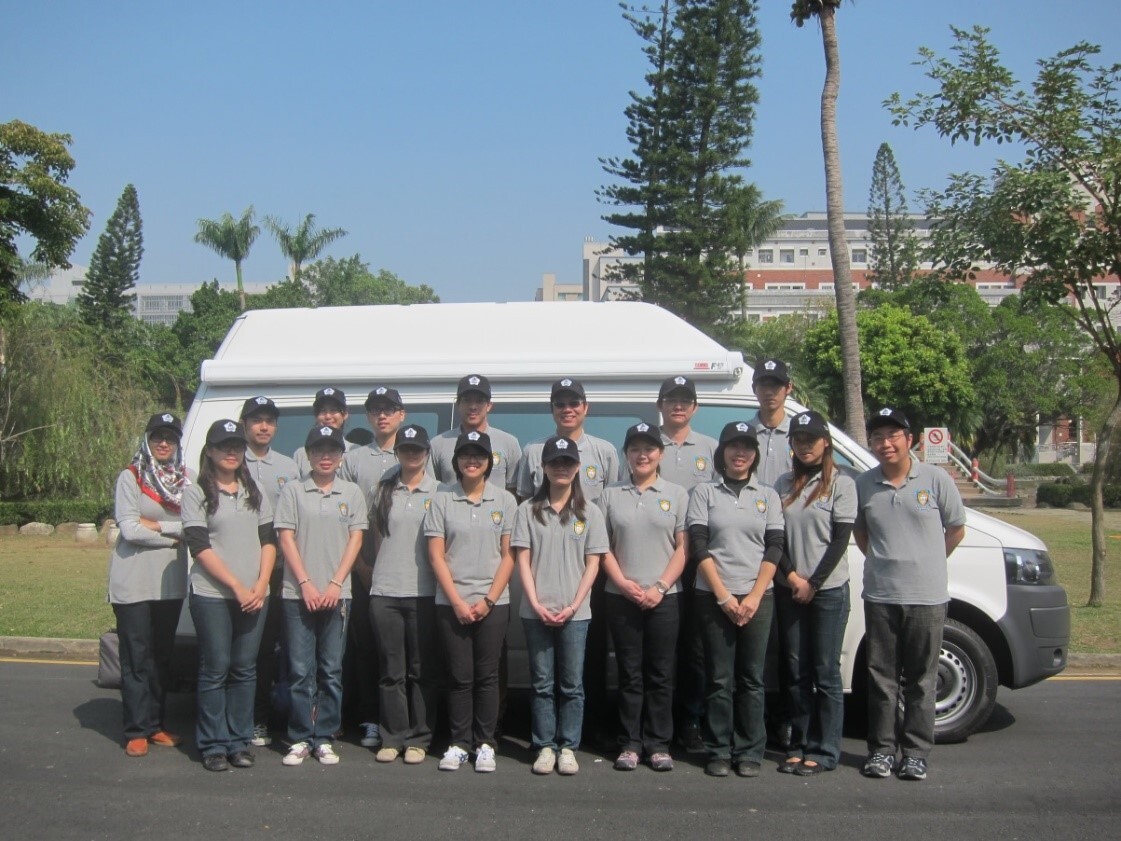
Prof. Lin's team's mobile monitoring vehicle
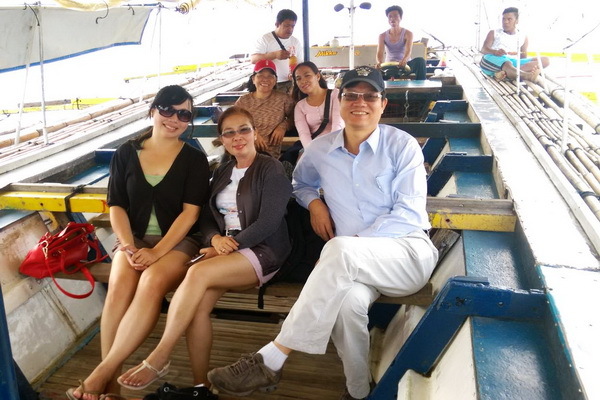
Sampling team of Laguna de Bay
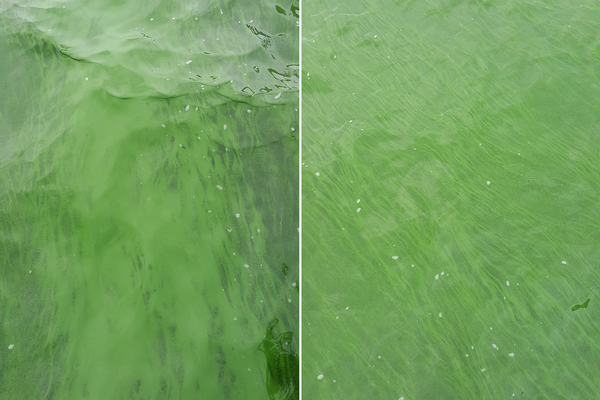
The situation of Algal bloom in Laguna de Bay
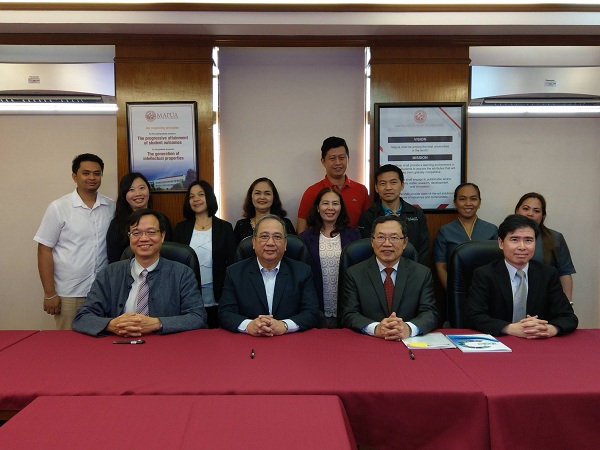
NCKU, University of Mapúa and Taiwan Water Corporation signed cooperation agreement
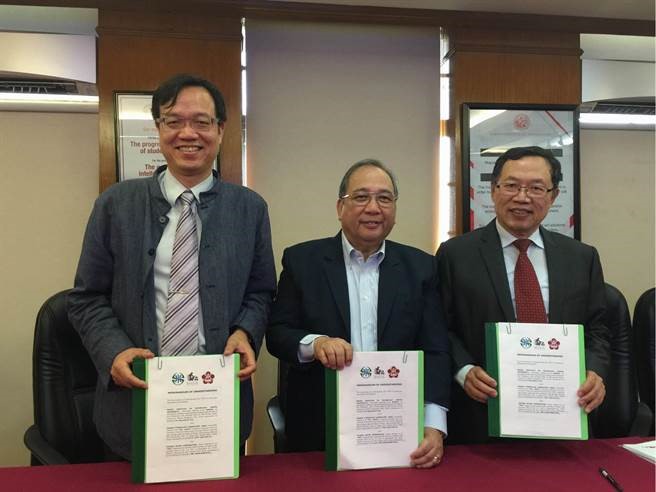
NCKU, University of Mapúa and Taiwan Water Corporation signed MOU
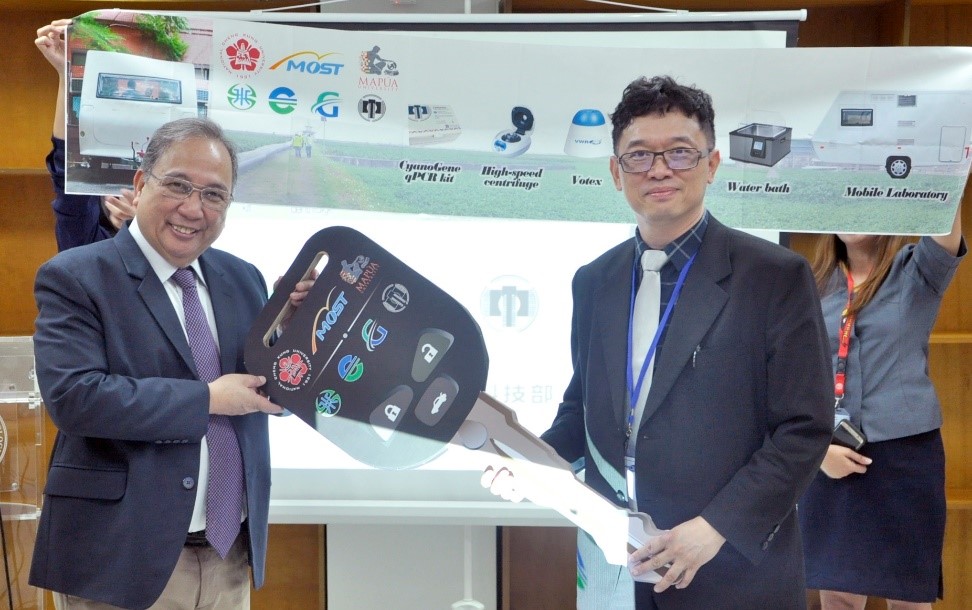
The establishment of Taiwan-Philippines Joint Water Quality Research and Innovation Center




